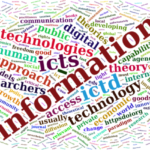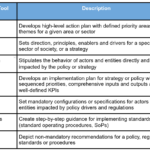Disruptive, transformative and revolutionary are some adjectives commonly used to describe the potential impact of new and emerging technologies on society. Joblessness, human decay, and the Singularity sit on the opposite side, constantly reminding us of the darker side of technology. 
Indeed, there are two traditional approaches to the social impact of technology, which, despite their wildly divergent predictions, share a common trait.
The first and most commonly accepted approach is the Instrumental Approach. Here, technology is a tool: A hammer is a hammer; the Internet is the Internet, ready to be used by people – but lacking any intrinsic social value. In this perspective, technology is neutral, meaning 1. Technology can be used in any social environment and can thus be easily transferred to any country or locality (unlike a democracy of institutions). 2. Like knowledge, technology is universally accepted because it is based on scientific and rational concepts, regardless of institutional, political, or socio-economic context. On the contrary, the latter can become obstacles to its universal adoption and spread. And 3. Technology is also ubiquitous since its effective deployment brings efficiency by default. And efficiency, closely related to productivity, can be universally measured regardless of any particular context.
The instrumental approach has led to the rise of techno-utopia, which started in the modern era not with the Internet but instead with the birth of the electrical telegraph in the 19th century.
The Substantive or Anthropological Approach sees technology as an independent force relentlessly invading all spaces of social life and changing social values for good. In this view, technology evolution reflects increased control and manipulation of nature, which, in turn, presupposes advanced scientific knowledge is now in the hands of a few – while the public remains oblivious to its inner workings. But technology rapidly reaches consumers with little to no choice but to use it. This is how technology starts taking over social life and could eventually control society.
The substantive approach has recently gained new supporters thanks to the re-emergence of artificial intelligence and machine learning. The so-called Singularity, endorsed by many well-known scientists and reputed technologists, is the best contemporary example of this approach. Dystopia is the outcome of this perspective.
Despite their apparent differences, both approaches share a common assumption: Technology is an external factor whose dynamics seem beyond human control. It is a given that must be used and adopted at any cost with little to no choice to do otherwise. Technological determinism is the result of this assumption shared by both perspectives.
The way out of this conceptual impasse is to define technology as a social product. After all, human interactions shape not only its creation and evolution but also the future of society altogether. In this light, human agency via participation and engagement is critical to ensure technology promotes positive social change and advances human development.
Blockchain technology (BCT) is perhaps the best contemporary example of a sophisticated technology that seems well beyond the public’s understanding. While this does not mean that the average person can not use BCT, it does show the potential emergence of an Engineerocracy or Algocracy as a distinct possibility in the short run – unless society engages in the process of technology production, diffusion, and social appropriation.
The concept of efficiency also plays a vital role. Efficiency is almost always cited as one of the most important benefits of technology deployments. In most cases, it seems to be their driving force, usually trumping other potential benefits such as agency, transparency, and accountability. Initiatives focused on fostering governance and rights issues are the notable exception here.
Cheers, Raúl
Selected Readings
Below are some of the resources consulted for this post.
Alexander, J. K. (2008). The Mantra of Efficiency: From Waterwheel to Social Control. Baltimore: John Hopkins University Press.
Bijker, W. E. (1995). Of Bicycles, Bakelites and Bulbs: Toward a Theory of Social Technological Change. Cambridge: MIT Press.
Borgmann, A. (1984) Technology and the character of contemporary life: a philosophical inquiry. Chicago/London: University of Chicago Press.
Dusek, V. (2006): Philosophy of Technology: An Introduction, Malden (MA): Blackwell.
Ellul, J. (1964) The technological society. Translated by J. Wilkinson. New York: Alfred A. Knopf.
Feenberg, A. (2010). Between Reason and Experience: Essays in Technology and Modernity. Cambridge: MIT Press.
Feeberg, A. (2017). Technosystem: The Social Life of Reason. Cambridge: Harvard University Press.
Habermas, J. (1970). Toward a rational society. Boston: Beacon Press.
Heidegger, M. (1977). The Question Concerning Technology and Other Essays. New York: Harper & Row.
Ihde, D. (1993). Philosophy of Technology: An Introduction. New York: Paragon House.
Kroes, P. (2012) Technical artifacts: creations of mind and matter. Dordrecht/Heidelberg/New York/London: Springer.
Latour, B. (1993). We have never been Modern. Cambridge: Harvard University Press.
Latour, B. (2005). Reassembling the Social: An Introduction to Actor-Network-Theory. London: Oxford University Press.
Mitcham, C. (1994). Thinking Through Technology: The Path between Engineering and Philosophy. Chicago: University of Chicago Press.
Mumford, L. (2010). Technics and Civilization. Chicago: University of Chicago Press.
Rodrick, D. (2015). Economics Rules: The Rights and Wrongs of The Dismal Science. New York: W.W. Norton.
Simondon, G. (2017). On the Mode of Existence of Technical Objects. Minneapolis: Univocal Publishing.
Winner, L. (1986). The Whale and the Reactor: A Search for Limits in an Age of High Technology. Chicago: University of Chicago Press.







Comments
One response to “Overall Perspectives on Technology”